
A trend began several years ago for practices to move billing and coding offshore to save money, which has often led to crippling the practices rather than adding any advantage in terms of being more effective, efficient and productive. And money has often been lost rather than saved.
A January 2019 “For The Record” article titled Is Offshore Coding Dead in the Water? tells of a two-year study involving six hospital systems. In an apples-to-apples comparison of USA coders and offshore coders, the offshore coders were less accurate and productive than the USA coders. There was a higher denial rate and lower reimbursement resulting from a lower case mix index. Additionally, offshore coders required longer onboarding.
In the end, the savings realized from employing lower-wage offshore coders was lost to productivity issues and lower reimbursements. All variables considered, offshore coders cost hospitals $3.10 per hour more than their American counterparts.
The study, which was presented in detail at the 2018 American Health Information Management Association (AHIMA) Convention was the first of its kind, and it appears the findings are the first solid numbers supporting a move away from offshore coding solutions. However, warnings from various sources existed long before the study was begun. Law firms, healthcare organizations, publications and IT groups were among those sounding alarms.
Offshore Medical Billing Poses Security, Legal Issues
As far back as 2012, the Liles/Parker Law Firm, which specializes in Healthcare Law, warned of security and legal issues arising from the use of offshore groups in an article titled Overseas Outsourced Billing and Coding – Compliance Risks. The article opens with, “Thinking of sending your medical billing and coding functions out of the country? You better think twice. While overseas outsourced billing is growing in popularity for medical office functions, this practice represents a unique set of problems for both physician practices and 3rd party billers. And the news is just getting worse." Some points made in the article include:
- You have no guarantees that a coding and billing business overseas is HIPAA compliant or even understands the law at all.
- Providers are responsible not only for their practice, but also for the acts of their business associates and their respective subcontractors overseas.
- Obtaining a judgment against an offshore entity is next to impossible, takes a substantial amount of time, and costs a lot of money.
- Liles/Parker writes, "We had previously reported that the backlog for having a case heard in India was nearly 20 years. But recent estimates by the National Bar Association of India put that figure closer to 350 to 400 years."
- Offshore workers have extorted providers over PHI records. In one case, an employee of a Pakistan billing company contacted the hospital on whose records she was working. She demanded a significant sum of money from the hospital or she would release the medical records on the Internet and anonymously contact United States authorities. Given the legal case backlog information above, the hospital had no option but to pay.
Supreme Court Stepped In After Liles/Parker 2012 Article
The 2013 HIPAA Omnibus Rule prevents medical providers from enforcing HIPAA laws in foreign countries. Providers are responsible for improper disclosures and breaches with business associates and their respective subcontractors overseas. Thus, if a provider offshores billing or EMR the provider is responsible for all HIPAA fines, which could be as much as $10,000 per violation.
There are some so-called "USA-based" medical billing companies that have home offices in America, but offshore the majority of their work. These companies are dependent upon their foreign workers, but as American companies they have to answer to their clients when problems arise offshore.
Publications Report Offshore Horror Stories
A 2013 "Fierce Healthcare" article titled 32,000 Patient Records Exposed On Contractor's Unsecured Website tells of a Tennessee-based hospitalist and intensivist group that contracted with an India company to transcribe care notes dictated by physicians. The contractor was supposed to store protected patient health information on a secure website, but its firewall was down between May 5 and June 24 before the Tennessee group discovered the problem.
Health information on 32,000 patients across 48 states was exposed. Compromised patient information included patients' names, dates of birth, diagnosis description, treatment data, medical history and medical records numbers. According to U.S. Department of Health and Human Services records, it was the second HIPAA breach for the Tennessee group.
The article reports that according to the Ponemon Institute, considered an eminent research center dedicated to privacy, data protection and information security policy, 94% of 80 participating healthcare organizations polled had experienced at least one data breach that they were aware of in the previous two years. Those breaches cost organizations a total of $6.78 billion annually.
IT Companies Warn Against Overseas Medical Billers
Scouring the Internet for multiple IT company remarks on offshore medical billing and coding, here are some summarized views:
- There are always dangers of HIPAA security breaches and violations of patient privacy, but these dangers are intensified with offshore contractors, and immediate fixes are less tenable.
- Many offshore companies utilize a “bait-and-switch” technique. Initial workers assigned to you are what the company considers as their “best.” Later, these “best” are replaced by the company’s lowest-paid, inexperienced workers who use the login of the original worker. Errors increase, productively drops, and security suffers.
- Low-paid offshore workers are enticed to commandeer ePHI (as referenced in the Liles/Parker information above). Such tactics provide a much greater risk than any possible savings afforded by cheap offshore work.
- Offshore contractors may present a basic package of service, but then charge extra for services that are already bundled in initial agreements by a truly 100% USA-based company like ClaimCare.
- Turnover rate is much higher offshore because employees are always looking for higher-paying jobs, whereas ClaimCare emphasizes medical billing "careers" rather than jobs. One of the things that entices quality people to seek employment at ClaimCare is the emphasis on personal growth opportunities within a company that grows annually.
- Surveys have shown that offshore workers are less experienced than USA-based workers and have little or no understanding of America's complex and everchanging federal and state laws regarding healthcare.
- In general, without taking into account Daylight Savings Time, the time in India (which has only one time zone) is 10.5 hours ahead of USA central time. (The half-hour aspect arose when the meridians for the Indian subcontinent were created. New Delhi was in between the two and India chose to be 30 minutes between the two time zones.) This time element, along with the language element, affects client and patient contacts to a large degree. It also limits real-time access to patient accounts and revenue cycle management reports.
- Whereas ClaimCare can work on clients' systems or its own, offshore contractors often work only on their own, which leads to lack of transparency in reports and data such as payment posting, collection efforts, charges, third-party payer claims and more.
Groups Push Congress to Delegitimize Offshoring
Some USA-based groups are pushing Congress to strengthen the HIPAA laws by making offshore medical billing illegal. One such letter to Senators and Representatives contains:
"A foreign workforce is not accountable to the HIPAA laws, and since the HIPAA laws cannot be enforced overseas, we ask that you protect us by keeping medical billing within the United States. In addition to the security that comes with a USA-based labor force being held accountable to HIPAA laws, this move would also keep medical billing jobs in America. We need your presence in Washington to create and pass legislation that safeguards our sensitive data and preserves the medical industry. Do not work so hard to create safeguards within HIPAA only to see them undermined by offshoring."
ClaimCare Rescues Providers, Facilities from Offshoring
With deep knowledge of offshore billing issues, ClaimCare steps in with distinctive elements and nuances as a professional medical biller to solve the majority of problems that result from the offshore billing and coding model. In doing so, ClaimCare brings unique solutions that are designed to support effective communication, offer up-to-date healthcare intelligence and security, deliver the right information at the right time and fulfill our mission “To collect the maximum amount for your practice as fast as possible while helping to alleviate costs and hassle for your organization.”
About ClaimCare ®
ClaimCare has 30 years of medical billing experience. We have an established 100% USA-based medical billing team that has been assembled through a thorough pre-employment screening. All personnel participate in on-going training and strong process management to ensure they deliver only the highest quality medical billing services to clients.
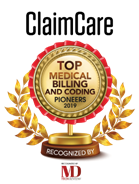 ClaimCare has once again been named a Top 10 Medical Billing and Coding Company. The honor this time comes from "MD Tech Review." The magazine’s Augmenting Medical Billing and Coding Operations article presents solid reasons why ClaimCare has been chosen for this 2019-2020 recognition.
ClaimCare has once again been named a Top 10 Medical Billing and Coding Company. The honor this time comes from "MD Tech Review." The magazine’s Augmenting Medical Billing and Coding Operations article presents solid reasons why ClaimCare has been chosen for this 2019-2020 recognition.
For more information, contact sales@claimcare.net, or phone toll-free at (855) 376-7631, or visit the ClaimCare Medical Billing Company website. We can assist your practice and/or facility in numerous ways, including complete certification processing.
100% USA-Based HIPAA-Compliant Medical Billing Company

 The Biden Administration is ending the COVID19 Public Health Emergency May 11, 2023. This blog is intended to assist you with that transition which includes important coding and
The Biden Administration is ending the COVID19 Public Health Emergency May 11, 2023. This blog is intended to assist you with that transition which includes important coding and![]() billing items that will change because of the end of the PHE. Even if you believe that you are no longer involved in the treatment of or diagnostics for COVID, if you are doing any kind of remote patient care, laboratory, or Telemedicine then you will need this information moving forward. It is hard for a medical provider to be Medical Billing Experts on all relevant topics. ClaimCare is here to help.
billing items that will change because of the end of the PHE. Even if you believe that you are no longer involved in the treatment of or diagnostics for COVID, if you are doing any kind of remote patient care, laboratory, or Telemedicine then you will need this information moving forward. It is hard for a medical provider to be Medical Billing Experts on all relevant topics. ClaimCare is here to help. 

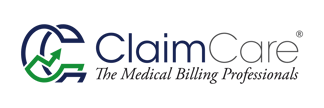
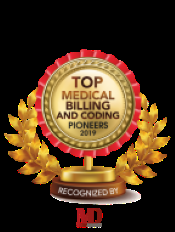





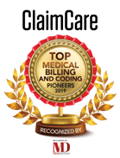 The magazine’s
The magazine’s 
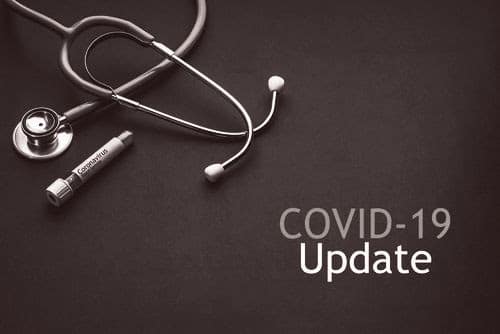


 ClaimCare has once again been named a “Top 10 Medical Billing and Coding Company.” The honor this time comes from MD Tech Review. The magazine’s
ClaimCare has once again been named a “Top 10 Medical Billing and Coding Company.” The honor this time comes from MD Tech Review. The magazine’s 
 We are posting this blog for ClaimCare clients and for other medical practices and facilities who have not yet become clients. During this continuing COVID-19 pandemic, we want to proactively explain to all in the healthcare industry why your Account Receivables may be behaving differently than anyone would expect.
We are posting this blog for ClaimCare clients and for other medical practices and facilities who have not yet become clients. During this continuing COVID-19 pandemic, we want to proactively explain to all in the healthcare industry why your Account Receivables may be behaving differently than anyone would expect.
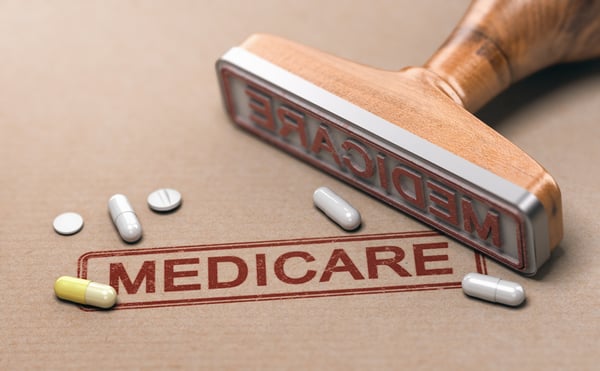

 At 2:45 this afternoon,
At 2:45 this afternoon, 